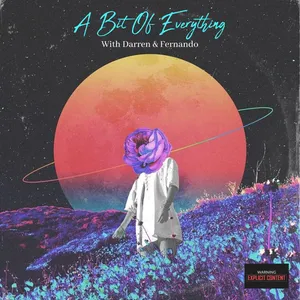Podcast Summary
Understanding offerings as gifts to the world: By framing our actions as offerings, we shift perspective, transforming tasks into gifts, freeing us from controlling others' reactions, and finding fulfillment and meaning in our actions.
Making an offering means doing our best to contribute to the world with a clear understanding that it's not our responsibility to control how it's received. This concept was illustrated by a story of a friend about to give his first talk as a Zen priest, who understood that his job was to prepare and deliver the talk, while the audience's job was to listen and make use of it as they saw fit. Framing our actions as offerings shifts our perspective, transforming mundane tasks into gifts and contributions, and freeing us from the burden of controlling others' reactions. By focusing on making our offerings wisely and with clarity, we can find fulfillment and meaning in our actions, rather than getting bogged down in the day-to-day drudgery.
Focus on offering instead of perfection: Embrace imperfection and focus on what you can offer in the present moment to make progress towards your goals.
Focusing on making an offering, rather than worrying about perfection or external validation, can help individuals manifest their aspirations. This mindset fosters a sense of generosity and internal control, allowing individuals to focus on their own gifts and paths of self-actualization. It also helps to reduce the impact of criticism or external responses, as acknowledged by the Tibetan adept Shantideva. By focusing on what we can offer in the present moment, we can break free from the blocks of perfectionism and external validation, and make progress towards our goals.
Focus on making authentic offerings to reduce anxiety and improve relationships: Focusing on making authentic offerings based on internal standards reduces anxiety and improves relationships by allowing others space and finding the right receiver
Focusing on making your own authentic offerings to the world and to others can help reduce anxiety about external validation and criticism. By judging our work based on our internal standards of sincerity and effort, we can lighten up about trying to control others' minds and actions. This approach allows us to give others space to breathe and be receptive to our offerings. Effective offering-making also involves finding the right receiver for our offerings, ensuring they are in a fertile place to be received. This concept can lead to healthier relationships and a greater sense of fulfillment. When we stop trying to fish in parking lots and instead focus on planting trees in fertile ground, we can make a meaningful impact on the world.
When to know when to move on: Recognize when progress is impossible and seek outside perspective to identify missing pieces, avoid wasting time and energy on lost causes, and focus on opportunities where we can make a meaningful impact.
Sometimes, despite our best efforts and intentions, we encounter situations where progress is impossible. This could be in business, relationships, or any other area of life. It's important to recognize when it's time to move on and look for more fertile ground. This doesn't mean giving up entirely, but rather acknowledging that our efforts may not be bearing fruit and seeking outside perspective to identify any missing pieces. Persistence is important, but so is knowing when to persist and when to pivot. It's also crucial to be honest with ourselves about our motivations and tendencies, whether we tend to give up too easily or hold on too long. Ultimately, learning to distinguish between fertile and unfertile ground can help us avoid wasting time and energy on lost causes, and instead focus on opportunities where we can make a meaningful impact.
Identifying environments that nurture our talents and potential: Reflect on past successes to understand causes, analyze natural talents, and seek out supportive environments to thrive.
Sometimes we may find ourselves in situations or environments that don't fully utilize our talents and potential. This can be due to unconscious biases or a lack of awareness about what truly nurtures and brings out the best in us. To identify more fertile ground, we can reflect on past experiences where we flourished and analyze the causes and conditions that contributed to our success. Additionally, it's essential to consider our natural talents and how they can be employed in environments that are most nurturing and supportive. We're not limited to our current environment, and there are ways to tune it to better suit our unique offerings. This could involve changing routines, schedules, or even asking others to be more open to what we have to offer. Ultimately, taking a step back, disengaging from our normal routine, and gaining a fresh perspective can lead to valuable wisdom and new opportunities.
Understanding and honoring your unique nature: Recognize strengths and limitations, identify skills and passions, and seek opportunities for growth based on authentic self.
It's essential to understand and honor your unique nature when making choices in life, particularly in regards to work. The quote from Albert Einstein, "If we judge a fish by its ability to climb a tree, we'll always think it's stupid," highlights the importance of recognizing the strengths and limitations of ourselves and others. Instead of trying to fit into an unsuitable environment, we should identify our skills and passions and seek out opportunities where we can thrive. It's a kind and tender approach to evaluate our own experiences and make offerings that align with our true nature. By doing so, we can answer yes to the questions of staying true to ourselves, honoring our gifts, and keeping faith with our hearts, regardless of external feedback. Overall, the theme of aspiration encourages us to value our inner voice and make choices that reflect our authentic selves.
Investing in yourself for long-term career success: Focus on personal growth, bring whole heart to work, and respect your own efforts for long-term fulfillment
Focusing on the long-term view of your career and investing in yourself is crucial, even if the costs are upfront and concrete. The benefits of such investments tend to compound exponentially over the course of your career. Additionally, what truly matters at the end of a long career is not what others think, but rather being true to yourself, bringing your whole heart and effort to your work, and respecting your own efforts. These internal metrics are what will provide a sense of fulfillment and satisfaction, rather than the fleeting opinions of others.
Focusing on the reason behind our actions, not just the result: Considering the motivation behind our offerings can lead to greater fulfillment and control in relationships and personal growth. If efforts are consistently unreciprocated, reassess and search for more fertile ground. Maintain a long-term perspective and focus on accruing value over the course of a life.
Focusing on the aspiration behind our offerings, rather than the outcome, can make it easier to find fulfillment and control in our relationships and personal growth. This concept can be applied to various aspects of life, including our careers and personal interactions. However, if we find that our efforts are consistently unreciprocated or unappreciated, it's essential to reassess and search for more fertile ground. Additionally, it's crucial to maintain a long-term perspective and focus on the big picture, accruing value over the course of a life instead of being overly focused on specific costs in the moment. If you've enjoyed today's discussion, consider checking out Rick Hansen's Foundations of Well-Being program, which offers a comprehensive approach to building resilience and coping with life's challenges. Early bird registration is currently open and ends on December 10th. For more information, please visit the link in the podcast description. Join us next week as we explore the final strength in our year-long series: generosity.





 Who knows what stories they will come up with? In our cousin time this week, they had a lineup to discuss this topic: "What is your superpower?" The answers were amazing![/caption] Your Challenge this week - create a curiosity board - all of you. What are common interests? What are those random curiosities that may light up that "bent of genius" in your family? Care for some Q&A? Hit us with any questions you have regarding education/school in your home. Ask in the
Who knows what stories they will come up with? In our cousin time this week, they had a lineup to discuss this topic: "What is your superpower?" The answers were amazing![/caption] Your Challenge this week - create a curiosity board - all of you. What are common interests? What are those random curiosities that may light up that "bent of genius" in your family? Care for some Q&A? Hit us with any questions you have regarding education/school in your home. Ask in the 


